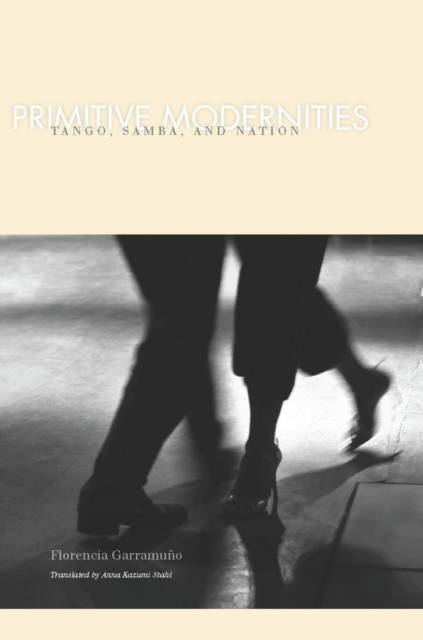
Door een staking bij bpost kan je online bestelling op dit moment iets langer onderweg zijn dan voorzien. Dringend iets nodig? Onze winkels ontvangen jou met open armen!
- Afhalen na 1 uur in een winkel met voorraad
- Gratis thuislevering in België vanaf € 30
- Ruim aanbod met 7 miljoen producten
Door een staking bij bpost kan je online bestelling op dit moment iets langer onderweg zijn dan voorzien. Dringend iets nodig? Onze winkels ontvangen jou met open armen!
- Afhalen na 1 uur in een winkel met voorraad
- Gratis thuislevering in België vanaf € 30
- Ruim aanbod met 7 miljoen producten
Zoeken
€ 209,45
+ 418 punten
Uitvoering
Omschrijving
Primitive Modernities invites us to reconsider the boundaries that usually separate popular culture from the culture of the elite. It focuses on the cultural network that enabled popular music--tango and samba--to transform into national and modern forms. The origin of tango and samba is considered primitive, marginal. Yet in the early decades of the twentieth century, they each came to symbolize a nation: Argentina and Brazil, respectively. Garramuño analyzes the aesthetic and ideological processes that enabled this transformation. Starting with the late nineteenth century, the author traces the changing meanings of the "primitive" in art, from savage and exotic to being linked to the modern. She considers not only music, but also painting, poetry, novels, essays, and films. Indeed, Garramuño understands culture as fundamentally a space of differences. In this sense, the book is also a reconsideration of the field of comparativism and of Brazil's place in Latin American Studies.
Specificaties
Betrokkenen
- Auteur(s):
- Uitgeverij:
Inhoud
- Aantal bladzijden:
- 216
- Taal:
- Engels
Eigenschappen
- Productcode (EAN):
- 9780804762496
- Verschijningsdatum:
- 24/08/2011
- Uitvoering:
- Hardcover
- Formaat:
- Genaaid
- Afmetingen:
- 155 mm x 231 mm
- Gewicht:
- 453 g

Alleen bij Standaard Boekhandel
+ 418 punten op je klantenkaart van Standaard Boekhandel
Beoordelingen
We publiceren alleen reviews die voldoen aan de voorwaarden voor reviews. Bekijk onze voorwaarden voor reviews.











